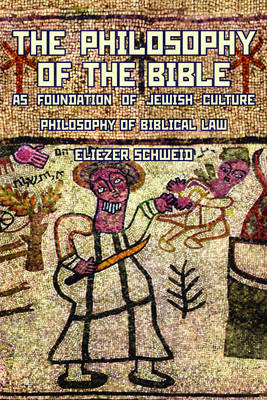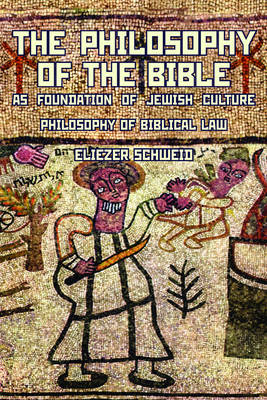
- Retrait gratuit dans votre magasin Club
- 7.000.000 titres dans notre catalogue
- Payer en toute sécurité
- Toujours un magasin près de chez vous
- Retrait gratuit dans votre magasin Club
- 7.000.000 titres dans notre catalogue
- Payer en toute sécurité
- Toujours un magasin près de chez vous
The Philosophy of the Bible as Foundation of Jewish Culture
Philosophy of Biblical Law
Eliezer SchweidDescription
Like Spinoza in his Theological-Political Treatise, Schweid helps us grasp the potential for seeing radically new messages in this oldest of books, the Bible.
The American Founding Fathers realized that the Bible offers strong support for the doctrine of popular sovereignty. Socially, it offers a message of egalitarianism, especially in the provisions of the Jubilee. It is hardly an accident that two modern political movements found mottos ready at hand from the 25th chapter of Leviticus: "Proclaim liberty throughout the land unto all the inhabitants thereof" (engraved on the Liberty Bell), and "The land shall not be sold in perpetuity" (motto of the Jewish National Fund).
Schweid helps us to appreciate the broader message of the narrative of creation and settlement of the land in its ecumenical and planetary dimensions. The world is God's creation, and its resources are to be deployed as necessary for the sustenance and need-fulfillment of all peoples and all creatures equally-a message very much relevant to the ecological crisis facing us all at the present time.
Spécifications
Parties prenantes
- Auteur(s) :
- Editeur:
Contenu
- Nombre de pages :
- 216
- Langue:
- Anglais
- Collection :
Caractéristiques
- EAN:
- 9781934843017
- Date de parution :
- 01-01-09
- Format:
- Livre relié
- Format numérique:
- Genaaid
- Dimensions :
- 156 mm x 234 mm
- Poids :
- 485 g







